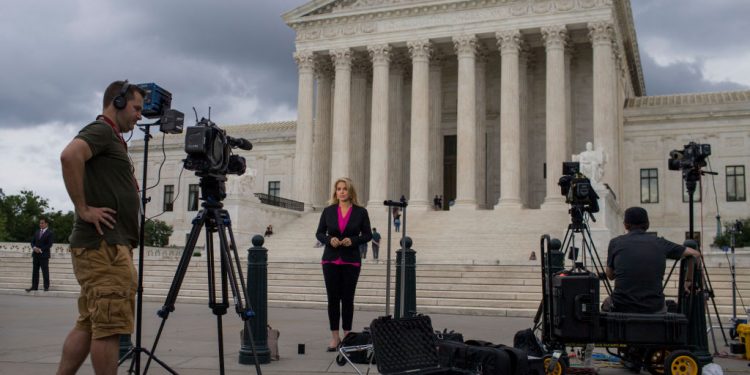
July 11, 2018

July 11, 2018
Democrat messaging against Judge Kavanaugh is falling apart at the seams and lacks any clear direction, as attacks from Chuck Schumer and the Left have been shot down by expert legal analysts and media fact checkers over the past 24 hours.
This morning, the Washington Post Fact Check team debunked the “extreme distortion[s]” of Judge Kavanaugh’s writings coming from Democrat politicians and activists. WaPo points out that they are distorting the crux of Judge Kavanaugh’s arguments:
“But Kavanaugh’s articles from 1998 and 2009 are no smoking-gun evidence that he would vote to dismiss an indictment against Trump, should one ever be filed. Although he clearly believes it’s a bad idea to indict a sitting president, Kavanaugh never states his view whether the Constitution allows it. In fact, he says Congress should pass legislation to ensure the president is immune from civil and criminal proceedings while in office. As [Harvard professor Noah] Feldman writes, Kavanaugh’s 2009 article can be read as a signal that he might uphold a presidential indictment unless Congress changes the law.
“We don’t mean to split hairs by analyzing whether Kavanaugh believes something “can’t” or “shouldn’t” happen, but in the legal arena, this distinction matters. Kavanaugh’s stated views on this question don’t go as far as Fallon, Maloney and Ocasio-Cortez claimed. Their tweets merit Two Pinocchios, although we considered giving Three. To say Kavanaugh is Trump’s “get-out-of-jail free card” is an extreme distortion of what he’s written.”
The Washington Post’s fact check followed a breakdown from Brookings Institution senior fellow and Lawfare Editor In Chief Benajmin Wittes stating Kavanaugh’s writings actually argue for the exact opposite of the Democrats’ attack:
“Kavanaugh, by contrast, made the then-unpopular case that some independent counsel law remained necessary: “future debates,” he wrote, “should not focus on whether a special counsel statute is necessary, but rather on the more pertinent questions of by whom and under what conditions a special counsel should be appointed.” He went on to sketch out what a healthier independent counsel law might look like—healthier as a matter of constitutional law, as a matter of policy and as a matter of democratic governance. While Congress did not take him up on writing this particular law, his specific proposal bears attention today by those who are interested in how Kavanaugh might respond to the Office of Special Counsel in the age of Trump. …
“To me, however, the far more salient fact is that Kavanaugh has articulated a vision of a legitimate and appropriate investigation under our constitutional scheme and that it looks so much like the Mueller structure—and that he believes that the president of the United States has no common-law privileges before such an investigation.”
Harvard Law School professor Noah Feldman, who clerked for U.S. Supreme Court Justice David Souter, made a similar point in Bloomberg yesterday, stating that these Democrats’ attacks on Kavanaugh “can easily be refuted”:
“Some Democrats and advocacy groups are saying President Donald Trump picked Judge Brett Kavanaugh as his second nominee to the U.S. Supreme Court because of Kavanaugh’s view that a president shouldn’t be indicted while in office. It’s important that not become the narrative of the Democrats’ opposition, because it can easily be refuted.
“Properly understood, Kavanaugh’s expressed views actually support the opposite conclusion: that the president can be investigated and maybe even indicted unless Congress passes a law saying he can’t — which Congress has not done.”
Thomas Jipping, deputy director of the Heritage Foundation’s Meese Center for Legal and Judicial Studies, stated the obvious – that these attacks are little more than “propaganda spewing from Booker, et al.”
“Kavanaugh made a suggestion that Congress consider legislation. Not a word he wrote in that article had any connection to anything he could or would conceivably do as a judge. Not. One. Word.”